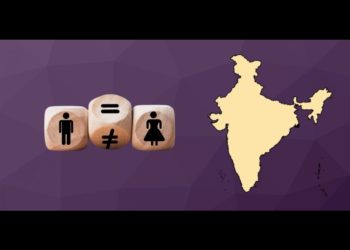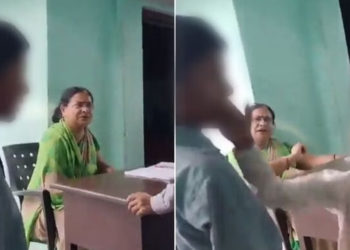
2022 witnessed some path-breaking judgments by the Supreme Court that have given women the right to make their own choices and live a life which is not dictated by patriarchy or societal norms.
Listed below are four such judgements passed by the court which are both reformative and progressive in nature.
Two-finger test banned
One of the most appreciated and reformative judgments taken by the Supreme Court of India was to ban the two-finger test. On October 31st, in a ruling, the court said that any conducting the two-finger test on sexual assault victims or rape victims would be found guilty of misconduct.
The court also mentioned that the test was, “ regressive and invasive”, conducting such tests further traumatises the victims, and it does not hold any scientific basis for proving whether the victim was raped or not. The bench, comprising then Justice Dr. D.Y. Chandrachud and Justice Hima Kohli, was restoring convictions regarding a rape-murder case when they also mentioned that the test was patriarchal “and the test is based on false assumptions that a sexually active woman cannot be raped. A women’s sexual history is irrelevant and in no case can it prove that the accused did not rape her.”
However, this is not the first time, the top court has condemned the actions of such practices. In 2013, in Lillu versus State of Haryana, it said that the two-finger test violates the rights of sexual assault and rape victims, and that despite the Union Government’s guidelines in this regard, this test is still being practised.
The two-finger test is generally done on sexual assault or rape victims by a medical practitioner who inserts two fingers in a woman’s vagina to examine the hymen and also check the laxity of the vaginal muscles. The test is done to examine the woman if she had recent intercourse. Furthermore, the test has been termed to have no scientific basis.
Also read: The two finger test: An old wine in a new bottle
Abortion rights expanded
When in the United States of America, women are suffering after the U.S. Supreme Court took away federal protection from the right to access abortion, In India, we witnessed a judgement which is not only a landmark but also brought with it the feeling of liberation.
In one of the most applauded judgements by the Supreme Court of India, women have the right to abortion. Every woman, irrespective of her marital status, has the right to get a safe and legal abortion up to 24 weeks of pregnancy under the Medical Termination of Pregnancy Act, 1971 (‘MTP Act’). This judgment doesn’t only involve cis-women, but also people who identify themselves as females. The bench, comprising then Justice Dr. Chandrachud, and Justices J.B. Pardiwala, and A.S Bopanna gave the verdict and an interpretation of the MTP Act, that any woman regardless of her being married is liable to safe and legal abortion.
While giving the judgement, the bench also mentioned that the distinction between married and unmarried women is based on stereotypical assumptions that only married women are sexually active. The court further said that discriminating between a married and an unmarried woman is a violation of Article 14 of the Constitution.
The court also emphasised reproductive and individual autonomy to be an important right for every woman. The choice of abortion is whole solely dependent on the body carrying the foetus. The court also pointed out that when someone wants to terminate their pregnancy which happened due to rape, marital rape will also be considered.
Also read: Gestational change in India’s abortion jurisprudence
Right to live in shared household not restricted to matrimonial home
While protecting the rights of women in a shared household, the Supreme Court gave a laudable judgement under the Protection of Women from Domestic Violence Act, 2005. The Act protects the rights of wives in a shared household even if she has never lived there. If a woman lodges a complaint under the 2005 Act, she has all the rights to live in her husband’s house, even if the husband isn’t the legal owner of the house.
This Act protects the women from being thrown out of the marital houses. The court ruled that the woman has the right to reside in the house of her husband or late husband even if she has not lived there before. The bench, comprising Justices B.V. Nagarathna and M.R. Shah, while giving the verdict also mentioned the meaning of “shared household”. The concept of a shared household gives protection to the women’s partners from the in-laws or husbands residing in the house. The act also protects the rights of live-in partners.
Demanding money for house construction is also Dowry:
Despite strict laws regarding dowry, the practice still persists. But in a remarkable judgement, the Supreme Court gave a much broader meaning to what all comes under the umbrella of dowry. A bench comprising then Chief Justice N.V. Ramana and Justices Hima Kohli and Bopanna said that “any demand made to a woman by in laws or husband asking for a property or money for security will come under the Section 304-B of the Indian Penal Code which caters to curbing the demands of Dowry.”
“In order to eradicate the social taboo like Dowry, a push in the right direction is needed.” Justice Kohli said. The court had overturned the verdict by the Madhya Pradesh High Court which stated that the acquitted husband and father-in-law in a dowry death did not ask for a dowry since the deceased herself asked for the money from her family, and this cannot be termed a dowry demand.
The court during the ruling mentioned, that the demand made by the deceased should be considered from the perspective that she was being tortured and was forced to ask for the money from her family, she did not do this on her own will. The court also mentioned that the evidence brought proves that she was being forced to ask for money from her mother and uncle. It also said that the order given by the trial court of convicting the husband and father-in-law for dowry was the correct decision.




